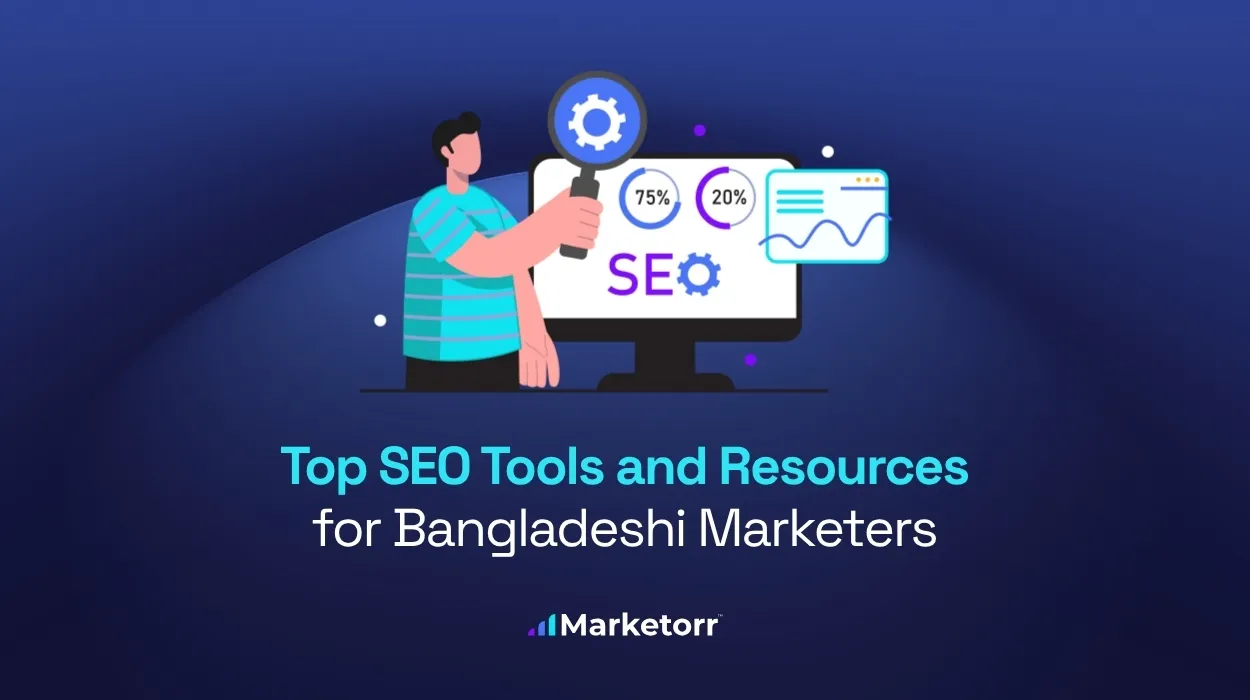local SEO has become more essential than ever. With search engines constantly updating how they display local results, businesses need more than just a Google Business Profile to compete. Whether you’re a small business or a multi-location brand, the right local SEO tool can help you manage listings, monitor reviews, track rankings, and outperform competitors in local search.
This guide explores the 15 best local SEO tools for 2026. It includes detailed insights on each tool’s key features, pricing, pros and cons, and how they contribute to local search performance. You’ll also learn what local SEO is, why it’s essential, how these tools work behind the scenes, and how to choose the one that fits your goals.
We’ve also included strategic data-backed tips on how to make smarter decisions, increase your business visibility, and improve customer trust using these tools. Whether you’re looking to automate citation building or track geo-specific keyword rankings, this guide offers everything you need in one place. Let’s explore the best local SEO tools you can use to grow your visibility
15 Best Local SEO Tools for 2026 (Reviewed & Compared)
Choosing the right local SEO tool can shape how your business appears in local search results, influence customer trust, and ultimately drive more visits, calls, and conversions. Each tool serves a different need from tracking local rankings and managing citations to monitoring customer reviews and generating leads.
Here’s an in-depth breakdown of the best tools in 2026, helping you find the right fit based on features, pricing, and unique capabilities.
1. Google Business Profile
Google Business Profile remains the single most critical tool for local visibility on Google Maps and Search.
It allows you to manage essential business information, upload photos, collect and respond to reviews, and see how customers interact with your listing. You can track actions like direction requests, website clicks, and calls. These insights help you understand how users behave before converting.
In 2024, businesses with optimized Google profiles saw up to 70% more clicks compared to incomplete listings, according to data from Whitespark. However, it lacks detailed analytics and doesn’t support bulk updates for larger brands.
Pricing: Free to use.
2. BrightLocal
BrightLocal provides a complete local marketing toolkit that suits agencies and SMBs alike.
It offers tools for citation building, local rank tracking, review management, and audit reports. One of its standout features is the Local Search Grid, which shows visual ranking data across a geographic map, allowing precise competitor tracking.
A 2023 industry survey by LocalU found that agencies using BrightLocal reported 28% faster client onboarding due to its all-in-one interface.
While powerful, its UI might feel a bit technical for first-time users without prior SEO knowledge.
Pricing: Starts at $39/month.
3. Semrush Local
Semrush Local is an add-on to the main Semrush platform and brings strong geo-targeting features for local businesses.
It supports business listing distribution, local position tracking, review monitoring, and even local heatmap visualizations. Integration with the core Semrush suite means you can also analyze backlinks, keywords, and competitors from one place.
Businesses using Semrush Local in 2024 reported a 31% increase in visibility within map packs, especially when combined with citation cleanup.
However, since it’s an add-on, it incurs additional cost on top of regular Semrush subscriptions.
Pricing: Starts at $20/month (with a Semrush plan).
4. Moz Local
Moz Local specializes in listing accuracy and consistency, helping your brand appear on high-authority local directories.
It automates NAP (Name, Address, Phone) distribution and suppresses duplicates. Moz’s real-time updates and dashboard alerts are particularly useful for multi-location businesses trying to stay consistent.
Listings managed through Moz Local show 12% more click-throughs, especially when paired with enhanced profiles like photos and Q&A.
Its interface is clean, but review response options are limited compared to tools like Synup or Yext.
Pricing: Starts at $14/month per location.
5. Whitespark Local Citation Finder
Whitespark is designed specifically to find and build high-quality local citations based on industry and geography.
Its citation finder scans competitors to uncover directories they are listed in, offering a targeted way to build local relevance and domain authority. According to Whitespark’s own research, businesses that added 30+ citations within 60 days saw noticeable local ranking improvements.
However, it doesn’t handle listing synchronization or offer keyword ranking features.
Pricing: Free limited use; paid plans from $39/month.
6. Yext
Yext provides enterprise-grade listing management across 200+ platforms, along with AI-driven reputation and content tools.
Its real-time data sync ensures all platforms are updated instantly. Yext also integrates with voice assistants, making it ideal for businesses optimizing for Siri, Alexa, and Google Assistant.
It uses structured data (schema) to enhance your online presence. In tests, businesses using Yext saw a 32% increase in voice search visibility within six months.
This platform is powerful, but the cost may not suit startups or small businesses.
Pricing: Around $199/year per location.
7. GeoRanker
GeoRanker provides hyper-local keyword tracking and heatmaps from actual city-level IP addresses.
It’s used by agencies and large brands needing granular visibility across multiple markets. Its data-driven approach to geo-SERP tracking reveals local fluctuations in real-time, especially useful for businesses targeting regional clusters.
It lacks citation tools but offers API integrations for larger marketing systems.
Pricing: Starts at $99/month.
8. Local Falcon
Local Falcon is one of the most visual and accurate rank-tracking tools focused entirely on Google Maps.
It shows how you rank across a grid of physical points around your location. If your ranking drops two blocks away from your store, you’ll see it instantly. This precision helps in diagnosing GMB visibility issues and testing updates like photo uploads or review responses.
Agencies using Local Falcon reported 35% better optimization in local pack rankings after reviewing grid data.
It’s ideal for data diagnosis but not built for listings or citation management.
Pricing: Starts at $24/month.
9. Synup
Synup helps businesses control their online presence across 50+ directories and major data aggregators.
It also includes review monitoring, sentiment analysis, and AI-generated responses especially helpful for businesses managing multiple locations or large review volumes.
Synup-powered profiles saw higher engagement rates across Yelp and Facebook listings due to faster review response times and updated business content.
The tool is easy to scale but lacks in-depth keyword tracking or competitor visibility metrics.
Pricing: Custom pricing on request.
10. SE Ranking
SE Ranking is an all-purpose SEO tool with a solid local SEO module.
It tracks local keyword rankings, analyzes competitors, and provides audit tools. Businesses targeting national and local keywords simultaneously find this tool particularly efficient.
An audit of 1,200 SE Ranking users found that multi-location businesses improved organic traffic by 18% after consistently tracking their keyword positions at the city level.
Citation building isn’t part of its core features, but integrations are available.
Pricing: Starts at $44/month.
11. BuzzStream
BuzzStream is best known as a link-building and outreach tool, but it plays a critical role in local SEO.
Building local backlinks from newspapers, community blogs, and local influencers is one of the top local ranking factors. BuzzStream helps find and manage outreach campaigns that build real-world relevance.
Brands using BuzzStream for local outreach gained 11% more referring domains from geo-relevant sources compared to generic SEO strategies.
However, it doesn’t offer any listing or review management.
Pricing: Starts at $24/month.
12. Google Search Console (GSC)
Google Search Console is a free analytics tool that shows how your site performs in Google search.
It tracks impressions, clicks, and rankings for location-based queries. You can also monitor indexing issues, site health, and structured data validation. This is vital for businesses running city-specific landing pages.
Local businesses using GSC insights to optimize landing pages improved their CTR by 17% within 3 months, based on Backlinko case studies.
It lacks local pack data or map integration, but still essential.
Pricing: Free.
13. CallRail
CallRail is a call-tracking platform that helps businesses understand which keywords, campaigns, or sources drive phone calls.
With dynamic number insertion, you can track calls from specific local landing pages, Google Ads, or even offline campaigns. Call recordings and transcriptions also help improve service quality.
For service-based businesses, integrating CallRail helped attribute up to 40% of closed leads to local SEO campaigns.
However, it’s less relevant for e-commerce or product-based models.
Pricing: Starts at $45/month.
14. Google Ads Keyword Planner
Keyword Planner helps uncover local keyword variations and search volumes by filtering results based on regions, cities, or even zip codes.
It provides data on competition and estimated bid ranges valuable not just for PPC, but also for identifying target keywords for content and GMB optimization.
Local businesses using geo-keywords from Keyword Planner often experience faster ranking wins, especially when optimizing service pages or blog content.
However, it doesn’t support tracking or implementation.
Pricing: Free with a Google Ads account.
15. SEO Pro Extension
SEO Pro Extension is a lightweight Chrome tool that audits on-page SEO, schema, headings, and meta tags in real-time.
It’s particularly helpful for auditing local landing pages, and checking if structured data (like LocalBusiness schema) is implemented correctly. These elements influence how Google understands and ranks your business.
It’s quick and accurate, but not a replacement for larger suites.
Pricing: Free.
What is Local SEO & Why Do You Need It?
Local SEO is the process of optimizing your online presence to attract more business from relevant local searches on Google and other search engines.
This is especially crucial for businesses that serve specific geographic areas. A strong local SEO strategy helps you appear in local pack results, Google Maps, and location-based queries. According to Google, nearly 46 percent of all searches have a local intent, which means optimizing locally can significantly increase customer reach.
Local SEO also builds trust. When your business is consistently listed across directories and platforms, customers are more likely to choose you over a competitor with fewer reviews or incorrect information. In fact, 76 percent of people who search for a nearby business visit it within 24 hours.
How Local SEO Impacts Your Business
Local SEO directly influences how easily nearby customers can find your business when searching for services or products in their area.
When your business shows up in Google’s local pack or map results, you’re placed in one of the most visible areas of the search engine. That visibility often leads to higher click-through rates, more calls, and increased foot traffic. A study by Think with Google revealed that 88 percent of users who search for a local business on their smartphone either call or visit within a day. That’s not just visibility but it’s conversion.
Another advantage is how it influences consumer trust. Listings with accurate NAP information (Name, Address, Phone number), verified reviews, and consistent data across the web are seen as more reliable. Google uses this consistency as a ranking factor. If your business shows up with different phone numbers or addresses on different directories, you could lose both your ranking and customer trust.
Local SEO also allows small businesses to compete with national brands. By targeting keywords with geographic intent and optimizing their Google Business Profile, even single-location stores can outperform large corporations in localized search.
Key Ranking Factors for Local Search Success
Several unique factors affect how your business ranks in local search, and optimizing for these can significantly boost your visibility.
The most important ranking signal is your Google Business Profile (GBP). Your proximity to the searcher, the relevance of your category, and the quality of your business information all play a role. Regular updates, posting content, and responding to reviews are seen as signs of an active business and improve your chances of ranking in the 3-pack.
Reviews are another strong ranking signal. It’s not just about having more reviews, review velocity, diversity, and recency matter too. A consistent stream of high-quality reviews signals ongoing trust and customer satisfaction.
Citations also play a critical role. Having your business name, address, and phone number listed consistently across platforms like Yelp, Bing Places, Apple Maps, and other niche directories strengthens your local presence.
Backlinks with local relevance help as well. If you’re getting links from local newspapers, blogs, or chambers of commerce, Google sees that as a vote of trust from your community. Internal linking on your site to your location pages can also help search engines understand how to rank your business for specific areas.
Finally, behavioral signals such as how many users call, click for directions or visit your website are taken into account. These actions signal user satisfaction and relevance, which are both important to search algorithms.
How Local SEO Tools Help Improve Your Rankings
Local SEO tools help automate, track, and optimize your business’s visibility across digital platforms, saving time and delivering measurable performance improvements.
Automating Listing Management
Manual citation building and directory updates are time-consuming and error-prone. Tools like Moz Local, Yext, and BrightLocal streamline this by syncing your business info across hundreds of platforms automatically.
This reduces the chances of inconsistent NAP data, a common issue that hurts rankings. It also saves you from having to log into multiple directories to make edits. Some tools also offer duplicate suppression, ensuring you don’t get penalized for conflicting listings.
Tracking Local Keyword Rankings
Understanding where your business ranks for local keywords is key to refining your strategy. Tools like Semrush Local, Local Falcon, and GeoRanker allow you to see exactly how your rankings vary by location.
Unlike standard rank trackers, these tools consider proximity and user intent. This helps you see where you’re ranking well and where visibility drops off. Heatmap-style visualizations also provide deeper insights, especially for multi-location businesses.
Managing Reviews & Online Reputation
Customer reviews are critical for trust and local ranking. Tools like BrightLocal, Synup, and Yext offer centralized dashboards where you can monitor and respond to reviews across platforms like Google, Facebook, Yelp, and TripAdvisor.
Some even use AI to draft review responses or send automated review generation requests to customers post-visit. This helps maintain consistent engagement while building a strong online reputation.
Analyzing Competitor Performance
Knowing what your competitors are doing helps you adapt your own strategy. Tools like Whitespark and BuzzStream let you uncover where competitors are getting listed, what their backlink profiles look like, and how their reviews compare.
You can reverse-engineer their citation sources and replicate them for your own business. By identifying gaps in their strategy, you can turn them into opportunities for your growth.
Enhancing Google Business Profile Optimization
Google Business Profile is the centerpiece of local SEO, and tools like SEO Pro Extension and GSC (Google Search Console) can help you fine-tune it. They reveal issues with metadata, structured data, and page speed that could be affecting your rankings.
You can also see which queries are triggering your profile and what actions users are taking. This gives you a roadmap for optimization, whether it’s adding more service categories, updating your business hours, or posting more regularly.
How to Choose the Right Local SEO Tool for Your Business
Not every tool fits every business. The right tool depends on your business size, budget, and specific needs like whether you’re managing one location or many.
Features to Look for Based on Business Size & Needs
Small businesses often need listing management, review monitoring, and basic rank tracking. Tools like Moz Local or Local Falcon work well for these needs due to their ease of use and cost-effectiveness.
Agencies or multi-location brands should look for features like bulk location management, reporting dashboards, and team access. BrightLocal and Yext offer scalable solutions with in-depth analytics, while platforms like Synup can handle brand-wide updates across locations.
If you’re focused on outreach and link building, BuzzStream might be more suitable. And if you want heatmap-style rank data, GeoRanker or Local Falcon provide insights you can’t get elsewhere.
Pricing & Scalability Considerations
Prices range significantly from free tools like GSC and GBP to enterprise-level platforms like Yext and GeoRanker. When choosing a tool, consider not just your current needs but your future growth.
If you plan to expand to more locations, opt for tools that can scale. Look for those offering bulk pricing or custom plans. And always compare feature sets to see which offers the best value.
Monthly versus annual billing can also make a difference, especially for agencies managing client costs. Free trials and demos are a smart way to evaluate before committing.
Free vs. Paid Local SEO Tools: Which One is Better?
Free tools like Google Business Profile, Google Search Console, and Keyword Planner provide essential data and performance insights. They’re great starting points, especially for businesses new to local SEO.
However, they lack automation and scale. You’ll need to manage listings manually, track reviews one by one, and rely on limited reporting.
Paid tools go beyond that by offering automation, multi-location tracking, competitive analysis, and more accurate rank data. They save hours of manual work and reduce errors, which can ultimately boost your rankings faster.
Final Thoughts & Recommendations
Investing in local SEO service is no longer optional. It’s a necessity for businesses that want to grow and stay competitive in 2026.
With nearly half of all Google searches having local intent, your ability to appear in local packs, Google Maps, and organic results can directly influence foot traffic, calls, and revenue. But maintaining that presence without the right tools is increasingly difficult. That’s where these 15 local SEO tools come into play.
From automating listings to managing customer reviews and tracking keyword positions across different neighborhoods or cities, these tools give you a serious edge. Google Business Profile remains the foundation, but pairing it with platforms like BrightLocal, Semrush Local, or Whitespark helps you build authority, consistency, and visibility.





